- What Exactly Is Compost?
- Compost vs Topsoil: What’s the Real Difference? Is Compost the Same as Soil?
- Should I Use Compost Instead of Soil?
- Can You Use Compost as Topsoil?
- Should I Use Soil or Compost?
- Which Is Better, Soil or Compost?
- Which Plants Don’t Like Compost?
- When Should You Use Compost?
- How Do Compost and Soil Work Together in the Garden?
- Can I Plant Directly Into Compost?
- Buying Guide: Compost Vs Soil – What’s Right for You?
- Conclusion: My Take on Using Compost and Soil Wisely
- FAQs: Compost Vs Soil in UK Gardening
As a UK gardener, I used to wonder: is compost the same as soil? They both look earthy, smell natural, and seem essential in the garden.
But over time, I discovered they serve very different purposes. Understanding these differences helped me grow healthier plants, enrich poor soil, and make smarter gardening choices overall.
What Exactly Is Compost?
Compost is decomposed organic material. It’s made from kitchen scraps, garden waste, and other biodegradable matter.
Over time, bacteria, fungi, and worms break this matter down into a nutrient-rich material that boosts plant health.
When I compost at home, I usually add:
- Fruit and vegetable peelings
- Grass clippings and leaves
- Coffee grounds and eggshells
Once matured, compost becomes a dark, crumbly substance that smells earthy. It’s packed with beneficial microbes and nutrients, making it ideal as a soil amendment, not a full substitute for soil.
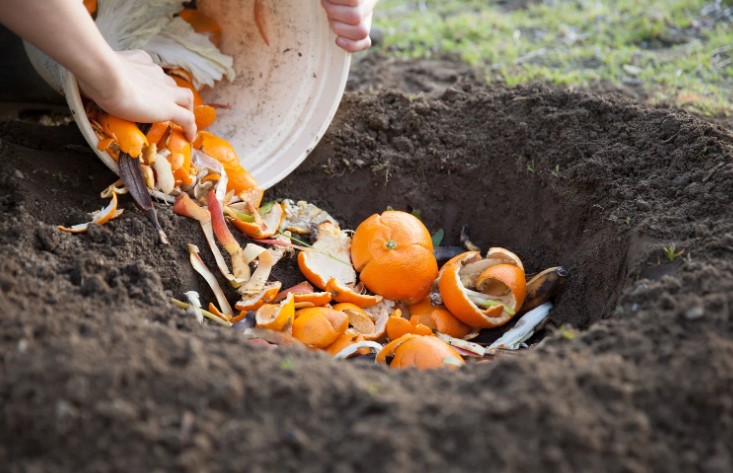
What Makes Up Garden Soil?
Soil is a natural mixture of minerals, organic matter, water, and air.
Unlike compost, which is manually created, soil forms over thousands of years through the breakdown of rocks and organic materials.
In the UK, we commonly encounter:
- Clay soil – dense, slow-draining but nutrient-rich
- Sandy soil – light, well-draining but poor in nutrients
- Loamy soil – the ideal mix of sand, silt, and clay
Each type has its quirks, but compost can improve all of them. Mixing compost into my heavy clay soil has done wonders for drainage and root growth.
Compost vs Topsoil: What’s the Real Difference? Is Compost the Same as Soil?
Many gardeners confuse topsoil with compost. Let’s break down the distinctions:
| Feature | Compost | Topsoil |
| Origin | Decomposed organic matter | Naturally occurring upper soil |
| Nutrients | High in organic nutrients | Moderate, varies by location |
| Texture | Loose, crumbly | Denser, depends on soil type |
| Purpose | Soil enhancer | Planting base |
| Best Use | Soil improvement, mulching | Lawn seeding, garden beds |
I use compost to enrich my garden beds and topsoil when I need to level out lawn patches or create new planting areas.
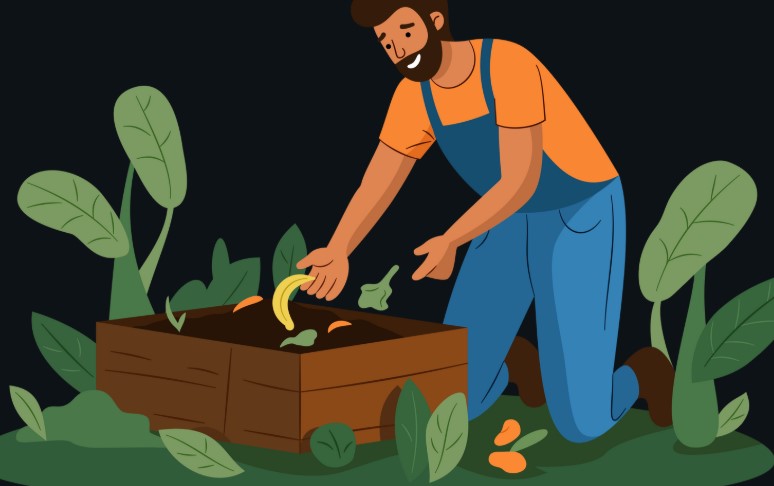
Should I Use Compost Instead of Soil?
No, compost isn’t a direct replacement for soil. While it’s packed with nutrients, compost lacks the structure needed for root stability and moisture retention.
I’ve found that pure compost dries out too quickly and may overwhelm delicate seedlings with nutrients.
Instead, I mix compost with soil—typically in a 1:1 or 1:2 ratio—depending on the plant’s needs.
Can You Use Compost as Topsoil?
Sometimes, yes—especially when dealing with poor or damaged soil. I often spread compost as a top layer on my garden beds to improve the existing soil’s quality. This is known as top dressing.
But if you’re laying new turf or filling garden beds from scratch, start with topsoil and then work compost into it for better results.
Should I Use Soil or Compost?
Here’s a quick breakdown of when I choose one over the other:
- Use Compost for:
- Soil enrichment
- Mulching around plants
- Boosting raised bed fertility
- Soil enrichment
- Use Soil for:
- Filling garden beds
- Lawn base
- Potting large plants
- Filling garden beds
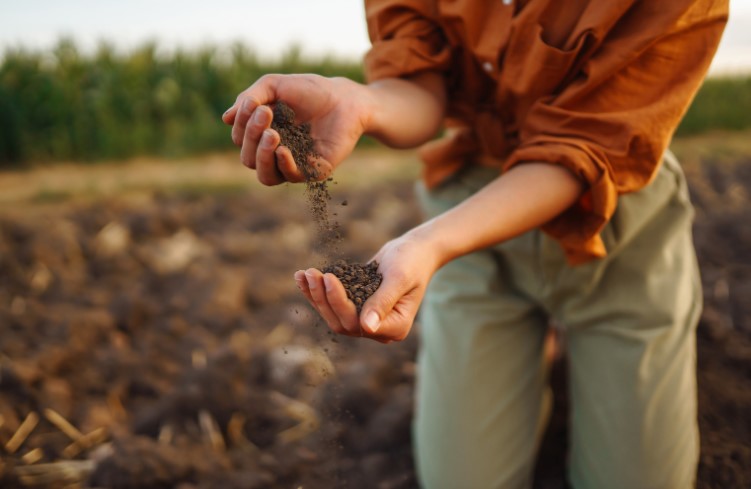
Which Is Better, Soil or Compost?
Neither is “better”—they serve different roles. Compost improves soil health, but it can’t replace it. Soil supports root structure, but on its own, it might lack nutrients.
Together, they create the perfect environment for plants to thrive.
Which Plants Don’t Like Compost?
Not all plants enjoy compost-rich environments. I avoid using compost around:
- Lavender, thyme, and other Mediterranean herbs (they prefer dry, lean soil)
- Native wildflowers, which often thrive in poor soil
- Cacti and succulents, which need fast-draining soil with minimal organic matter
Knowing these exceptions helps me avoid overfeeding plants that prefer simplicity.
When Should You Use Compost?
I apply compost at specific times during the gardening year:
- Spring – Mixing compost into beds before planting
- Summer – Light top dressing to boost nutrients
- Autumn – Mulching beds to protect and enrich winter soil
This seasonal approach keeps my soil fertile year-round.
How Do Compost and Soil Work Together in the Garden?
Compost acts like a booster shot for soil. By mixing it into existing soil, I’ve improved:
- Drainage in my clay-heavy garden
- Nutrient levels for vegetables and flowers
- Soil texture for better root development
The synergy between the two is why my garden performs better year after year.
Can I Plant Directly Into Compost?
I’ve tried it—and while some plants can survive, most don’t thrive. Compost alone:
- Holds too much moisture
- May lack structure
- Can burn young roots due to high nutrient content
I always recommend blending it with soil, especially for long-term planting.
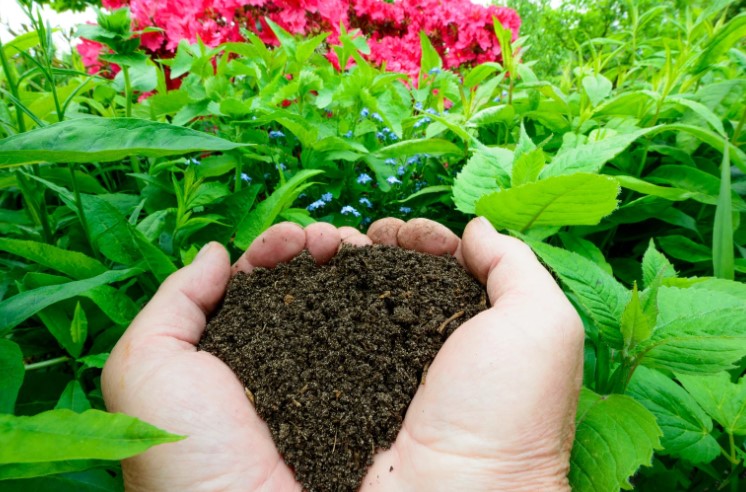
Buying Guide: Compost Vs Soil – What’s Right for You?
Before buying in bulk, I consider:
- Purpose: Planting, filling, or enriching?
- Budget: Compost can be more affordable when homemade.
- Source: Look for peat-free, organic-certified products in the UK.
✔ What to Consider:
- Is your soil heavy clay or light sandy?
- Are you planting veggies, flowers, or shrubs?
- Do you need to fill, feed, or revive?
Conclusion: My Take on Using Compost and Soil Wisely
In my garden, I’ve learned that compost and soil are partners, not competitors. Compost feeds the soil, improves structure, and helps plants grow stronger. Soil gives roots the foundation they need.
If you’re trying to improve your garden, start with understanding your soil type—then use compost strategically.
Whether you’re planting a rose bed or starting a vegetable patch, the right balance of compost and soil as in this article on is compost the same as soil, will make all the difference.
FAQs: Compost Vs Soil in UK Gardening
1. Can compost replace soil completely?
No—it complements soil but doesn’t provide the structural support needed on its own.
2. How often should I add compost?
I add compost once or twice a year—spring and autumn work best.
3. Should I mix compost with clay soil?
Absolutely. It improves drainage and workability.

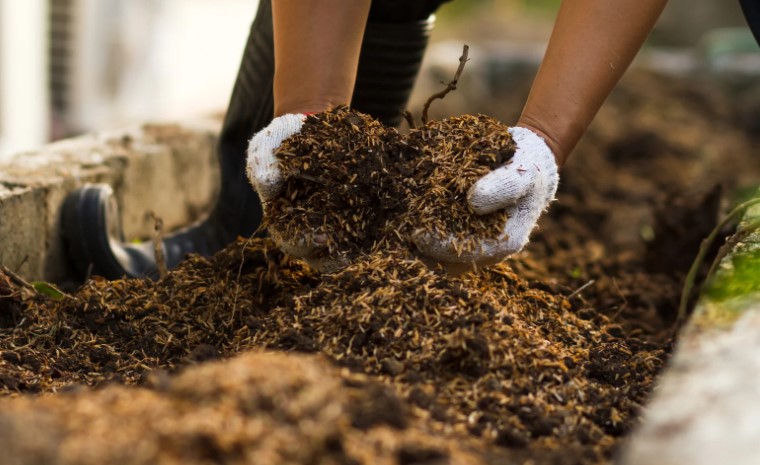
0 Comments